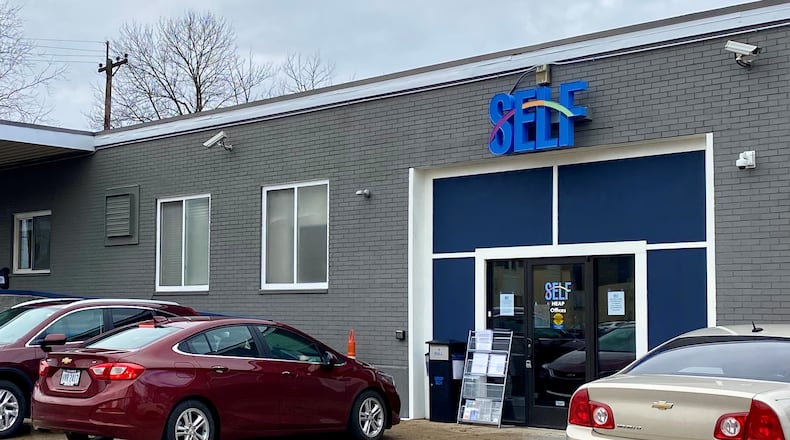She was then helped with almost $4,000 in back rent and even covered last month, so she could get caught up.
“It was amazing I didn’t see it coming,” she said. “I was struggling for most of the year trying to work and being pregnant and still keep up with my bills, because rent wasn’t the only thing I was struggling with. At times I had to pick my poison of what I needed to pay, it was very difficult for me.”
Reese is one local example of what will soon happen more. Non-profits are ready to help Butler County disburse more than $11.4 million in rental and utility assistance after the county commissioners awarded a contract to Supports to Encourage Low-income Families.
The federal government provided the funds to help people who have fallen behind on their rent due to the coronavirus pandemic. Only rent and utility assistance is available under this latest funding program, but SELF Executive Director Jeffrey Diver told the Journal-News his agency still has funds left over from previous grant awards, and more than $1 million can be used to help homeowners as well.
“We still have probably close to $3 million left from other pots that we’re administering,” Diver said. “We have some money that came from the state of Ohio and that could be used for rent or mortgages. We are going to be using it for mortgage because the other pots, the money the county approved can only be used for rent or utilities.”
Diver said his agency has helped 609 families keep their place to live during the pandemic, and he believes they can help many more.
Diver has enlisted the help of five partners to help spread the word and get eligible residents processed for their assistance. His agency will be working with the Butler County Educational Service Center, Family Promise, the Family Resource Center in Oxford, the Islamic Educational Council and Reach out Lakota. He also has five temporary employees for the program, his 12 staffers will also devote part of their time to the effort.
SELF can be reached via their website at selfhelps.org or 513-868-9300.
Butler County Commissioner T.C. Rogers said he has confidence in Divers’ ability to handle the program but “when you have an organization that has a budget of X and you then will have an organization which will be four times that, that’s a new ballgame.” He said he is glad Divers has enlisted other partners and trusts they will stay within budget.
Federal guidelines allow agencies to use 10% of the total grant, $1.14 million in this case, to pay administrative costs. Diver said he is still working details with his partners but he plans to pay a flat $200 per client helped.
Rogers said officials will monitor this program closely and “we’ll be looking at how these monies were used effectively so that we can maybe come up with programs in the future, as this gives us a chance to develop a couple models that may be in the best interest of our residents.”
There are restrictions on the money, some imposed by the federal government, and the commissioners added a few of their own. County Administrator Judi Boyko said there are approximately 45,000 rental units countywide and recipients of the relief must be able to demonstrate their inability to pay their rent is due to COVID-19. Eligible renters must make below 80% of the area median income, which equates to earnings of around $45,000 for a family of two.
The commissioners want assurance landlords won’t evict the people after they get their money or raise rent; they want to utilize wrap-around programs the county has to help people get back on their feet, and they want to make sure people understand this is short-term assistance.
Diver said they will make sure the people receiving assistance will be made aware of SELF’s own programs that help people become self-sufficient, as well as connect them with Ohio Means Jobs.
“We want to help people achieve self-sufficiency, that’s our mission, so if they are unemployed or underemployed we’ll make sure to provide the services to help them,” Diver said. “It’s not a requirement, but we’re going to make the connections, we’ll be leading the horse to water so to speak, but it will be up to the client to take advantage of those services based on their goals.”
The Development Department will oversee this program and Director David Fehr said they will be doing monthly “desk audits” similar to other grant programs. They take a random sample of three cases and comb over them to ensure everything is in compliance.
About the Author

